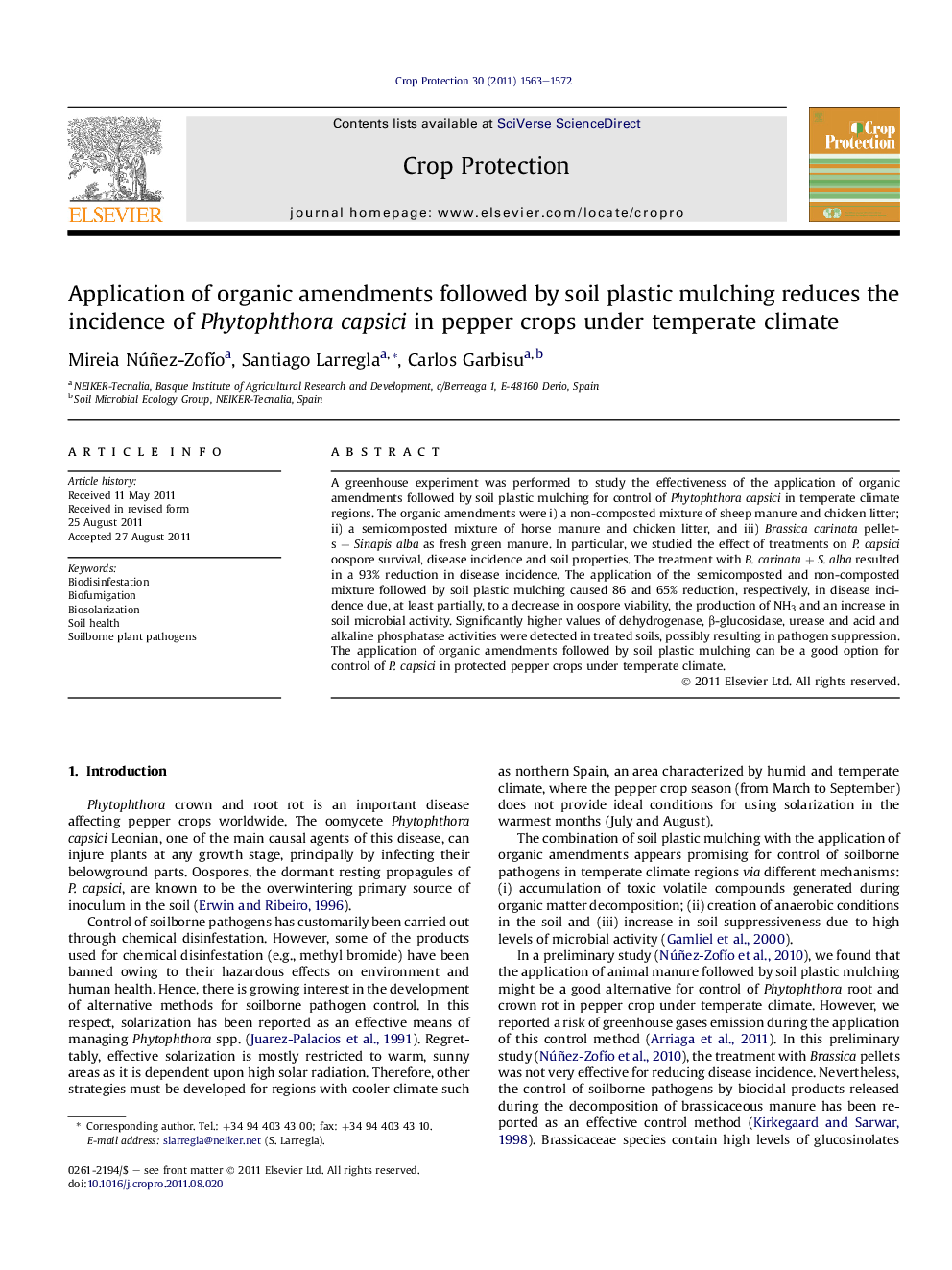| Article ID | Journal | Published Year | Pages | File Type |
|---|---|---|---|---|
| 4506542 | Crop Protection | 2011 | 10 Pages |
A greenhouse experiment was performed to study the effectiveness of the application of organic amendments followed by soil plastic mulching for control of Phytophthora capsici in temperate climate regions. The organic amendments were i) a non-composted mixture of sheep manure and chicken litter; ii) a semicomposted mixture of horse manure and chicken litter, and iii) Brassica carinata pellets + Sinapis alba as fresh green manure. In particular, we studied the effect of treatments on P. capsici oospore survival, disease incidence and soil properties. The treatment with B. carinata + S. alba resulted in a 93% reduction in disease incidence. The application of the semicomposted and non-composted mixture followed by soil plastic mulching caused 86 and 65% reduction, respectively, in disease incidence due, at least partially, to a decrease in oospore viability, the production of NH3 and an increase in soil microbial activity. Significantly higher values of dehydrogenase, β-glucosidase, urease and acid and alkaline phosphatase activities were detected in treated soils, possibly resulting in pathogen suppression. The application of organic amendments followed by soil plastic mulching can be a good option for control of P. capsici in protected pepper crops under temperate climate.
► Application of amendments followed by plastic mulching reduces disease incidence. ► Pathogen control effectiveness is due to an increase in soil microbial activity. ► During animal manure degradation, NH3 production in soil reduces oospore viability. ► Application of amendments followed by plastic mulching reduces oospore viability.
